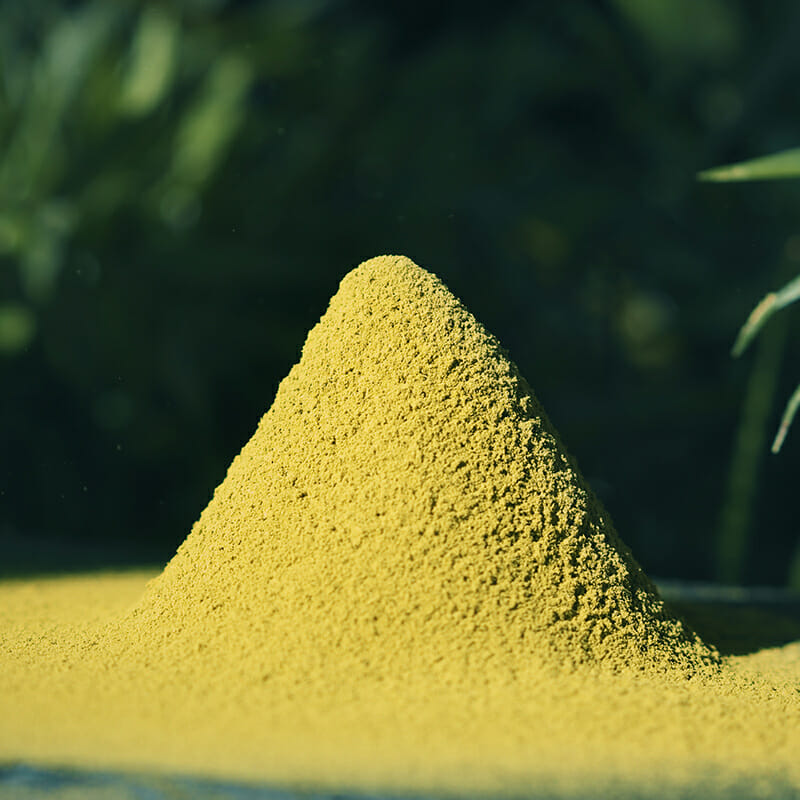More and more, pet owners are looking to Mother Nature to help their dogs feel better and live more active lives.
However, it might surprise you to learn that this trend isn’t necessarily new, and many different types of herbs have been used for decades to help pets relax, deal with stress, and engage more with the world around them.
At Kats Botanicals, we’ve made it our mission to bring the powerful benefits of botanical products to the people and pets whose lives can be improved the most from them. In this article, we are going to explore the most effective and available plant-based solutions used specifically to help dogs in a variety of ways.
From Fresher Breath to Soothed Stomachs
Many of the herbs routinely used by humans also hold incredible potential for dogs. It’s likely you have some of these herbs in your kitchen already; adding a few of them to your dog’s diet could be just what your pup needs to feel and function better than ever.
Oregano
It’s not just an herb for pizza! As it turns out, oregano has some impressive health benefits for dogs. Among them include:
- Bolstered immune system. Oregano is dense with antioxidants, which help in the fight against oxidative stress. Battling oxidative stress becomes more important as dogs age, and Oregano is an excellent source of powerful, natural compounds that can help stave off inflammation, disease, and premature degradation throughout the dog’s body.
- Powerful, natural wound treatment. Oil of Oregano has been shown to be antifungal and antibacterial, making it great for use when cleaning wounds on dogs.
- Improved gastrointestinal health. Ground or chopped oregano leaves are incredibly high in fiber, and for dogs, this can translate into enhanced stomach and intestinal health.
Mint
Let’s be honest: as cute as they can be, dogs don’t always have the freshest-smelling breath! This is where the power of mint can come in handy. As is the case with parsley, mint can immediately help to freshen your dog’s breath for hours.
Mint can also help dogs that experience motion sickness when traveling. It’s advisable to avoid using mint oil, which can be a bit too strong for some dogs. Instead, mix a few dried mint leaves in with wet or dry food. You might be surprised at how much your dog likes the garnish!
Turmeric
Ground turmeric powder comes from the subterranean branches of the Curcuma Longa plant. The benefits of turmeric are largely attributed to Curcumin, which is a naturally occurring plant alkaloid found in turmeric powder.
Supplemental use of Turmeric Powder by humans dates back more than 4,000 years to the ancient Vedic culture in India. Interestingly, turmeric can be a boon for dogs, too—the high levels of antioxidants and powerful anti-inflammatory properties can support joints, mood, and mobility.
Cannabidiol (CBD)
Just like in humans, dogs have an endocannabinoid system that helps them in regulating numerous essential functions, from sleep to appetite to the immune response.
Cannabidiol (CBD) is a naturally occurring alkaloid found in the hemp plant, and its usefulness for dogs has been studied extensively. CBD acts directly on the endocannabinoid system in dogs by heightening the activity of cellular messengers that stimulate other areas of the body, including the Central Nervous System.
Most of the benefits of CBD supplementation for dogs aid in reducing tension, supporting relaxation, and balancing mood. CBD can also help to promote a balanced mood for dogs that sometimes struggle with stressful situations.
Administering CBD to dogs is easy! Simply add a dropper-full of Kats Botanicals Canine Hemp Oil to wet or dry dog food; positive results can typically be realized after the first serving. And, CBD for dogs continues to work for as long as it’s used, unlike other canine nutritives that dogs can develop tolerances to.
If you’re considering adding CBD to your dogs diet, it’s highly recommended that you obtain all-natural, hemp-derived CBD oil that is natural and formulated specifically for dogs.
Mitragyna Speciosa (Kratom)
Recently, we announced the release of our newest product for dogs: Kratom Soft Chews. 
In reviewing the available scientific data related to the toxicity and/or beneficial effects of Kratom for dogs, there isn’t enough clinical evidence yet to make any definitive statements about Kratom’s efficacy or safety when consumed by dogs.
One recent study that focused on Kratom use by rats found the herb to be largely beneficial in a variety of areas without having any significant toxicity risks for the animals that were studied.
While there does appear to be some convincing evidence suggesting that Kratom can have many positive effects for some animals, we encourage you to do your own research and consult with your veterinarian to determine the best course of action to take for your dog.
Anecdotal reports from many pet owners suggest that responsible, closely monitored Kratom use by dogs can help to support well-being and boost energy levels.
As with humans, the best approach for adding Kratom to your dogs lifestyle is to start low and go slow as you introduce the herb to their diet. Kats Botanicals’ Kratom Soft Chews make this easy, as each soft chew contains 250 milligrams of premium Kratom.
The Final Verdict on Herbs for Dogs
Generally speaking, many of the herbs that humans enjoy, dogs can enjoy, too.
However, some herbs are best left off Fido’s plate, including:
- Nutmeg
- Onion
- Cocoa Powder
- Large amounts of garlic
- Black pepper
With these being the exceptions, feel free to do your own research on the many herbs and botanicals that can improve the life of your pet. And, as always, be sure to consult with your veterinarian before proceeding with any new additions to your pet’s diet.
Have questions about Kratom, CBD, or any of the other botanical products we offer? Reach out to us! We’re always happy to help out with a quick answer to your questions about how best to use plant-based substances to enhance your (and your dog’s) life.
Disclaimer: Keep in mind that there is no fitting substitute for the professional advice and direction given by a licensed veterinarian. Always consult with your veterinarian before giving your pet any of the substances listed herein.











